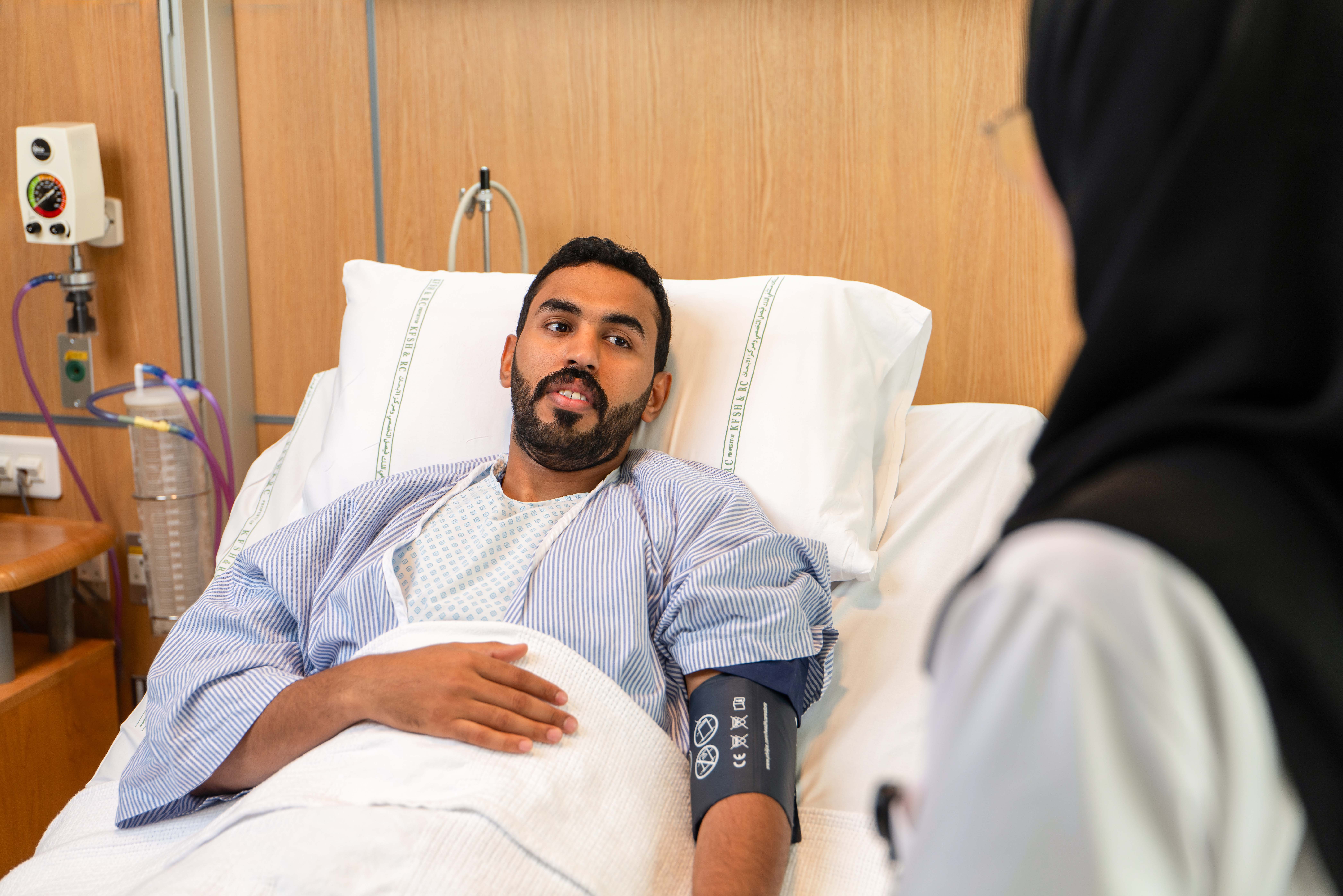By commencing the local manufacturing of CAR-T cells, King Faisal Specialist Hospital & Research Centre (KFSHRC) made a breakthrough in cancer treatment and a groundbreaking medical achievement for the Kingdom of Saudi Arabia. The move led to an 80% reduction in therapy costs, down from a hefty price tag of SAR1.3 million per patient. Doubling down on this approach, KFSHRC seeks to expand its production capacity to 100 gene therapies per year, making this advanced treatment available to more patients.
Through its booth as a Platinum Sponsor at the Global Health Exhibition, which kicked off today in Riyadh, KFSHRC showcases its pioneering experience in CAR-T cell production. The display explains to visitors the rationale behind the local production of these cells, briefing them on the manufacturing process, treatment mechanisms, and success stories, including highly resistant leukemia and lymphoma cases.
challenges involved in overseas CAR-T cell production, including supply chain disruptions and cryogenic storage. In the past, cells had to be shipped abroad for genetic modification and then returned to Saudi Arabia. This resulted in potential treatment delays and prolonged patient suffering. Additionally, the in-house production of the cells opens the door for further medical innovation and local clinical trials, ensuring access to advanced therapies with top quality and efficiency standards.
In addition, local manufacturing ensures superior treatment quality through KFSHRC’s semi-closed system, reducing contamination risks and providing a safer and more effective treatment. The modified T-cells become more efficient in attacking cancer cells, improving the precision of the therapy.
The production process begins by extracting immune cells from the patient’s blood sample. These cells are then genetically modified in hospital laboratories to target cancer cells. The modified cells are then re-injected into the patient, where they begin attacking the tumor effectively, speeding up recovery and improving survival rates.
CAR-T cell treatment targets a segment of patients with resistant cancers, such as leukemia and lymphoma, especially where traditional therapies have failed. By boosting the immune system’s ability to recognize and destroy cancer cells, the therapy offers new hope to the most challenging cancer cases.
This achievement aligns with Saudi Arabia’s National Biotechnology Strategy launched by Crown Prince Mohammed bin Salman, aiming to enhance national wellbeing, improve the quality of life, localize biotech industries, and maximize economic opportunities. The goal is to lead biotech innovation in the MENA region by 2030 and position the Kingdom as a globally leading biotech hub by 2040.
KFSHRC has been ranked first in the Middle East and Africa and 20th globally in the list of the world’s top 250 Academic Medical Centres for the second consecutive year and recognized as the most valuable healthcare brand in the Kingdom and the Middle East, according to the 2024 Brand Finance rankings. Additionally, in the same year, it was ranked among the world's best 250 hospitals and included in the list of the World’s Best Smart Hospitals for 2025 by Newsweek magazine.







